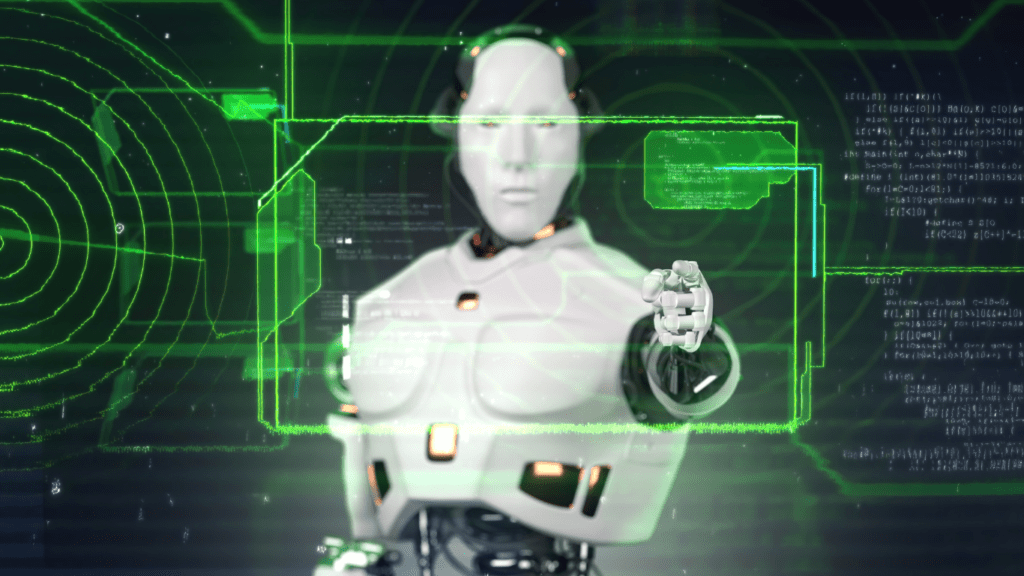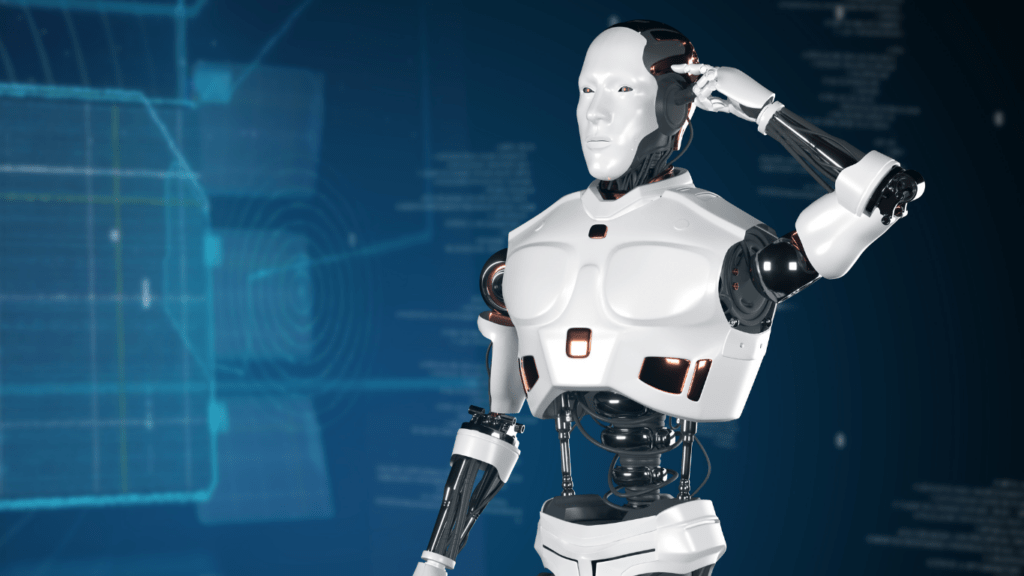In today’s fast-paced world, personalized nutrition has become a buzzword in the health and wellness industry. Harnessing the power of Artificial Intelligence (AI) to tailor dietary recommendations to individual needs is revolutionizing how we approach our well-being.
As an expert in the field, I’ve witnessed firsthand the transformative impact AI can have on optimizing nutrition for each unique individual.
AI algorithms analyze vast amounts of data, from genetic information to lifestyle habits, to create personalized nutrition plans that cater to specific goals and requirements. This cutting-edge technology not only enhances the effectiveness of dietary interventions but also empowers individuals to take control of their health like never before.
Join me as we delve deeper into the fascinating world of AI-driven personalized nutrition and explore the endless possibilities it offers for a healthier future.
Understanding Personalized Nutrition
Exploring the realm of personalized nutrition unveils a revolutionary approach to tailoring dietary recommendations based on individual characteristics. Personalized nutrition thrives on the diversity of our genetic makeup, lifestyle choices, and health goals to craft bespoke plans that resonate with our unique biology.
Leveraging the power of Artificial Intelligence (AI) in this realm is akin to unlocking a treasure trove of insights that transcend conventional, one-size-fits-all dietary guidelines.
Transforming the landscape of nutrition, AI algorithms delve into the intricacies of our genetic information and lifestyle habits to decipher patterns, preferences, and metabolic responses.
By dissecting this data, AI devises personalized nutrition plans that cater to our specific needs, aiming to optimize health outcomes and bolster overall well-being.
Embracing AI-driven personalized nutrition heralds a shift towards a future where diet and lifestyle choices are finely tuned to each individual’s requirements, harnessing the potential to revolutionize the way we perceive and approach nutrition.
Benefits of Personalized Nutrition
Exploring the benefits of personalized nutrition reveals numerous advantages that cater to individual needs and pave the way for enhanced health outcomes. Personalized nutrition, powered by Artificial Intelligence (AI) technology, offers tailored dietary recommendations based on specific attributes like:
- Genetic profile
- Lifestyle preferences
- Wellness objectives
These customized nutrition plans are meticulously designed to optimize individual health and well-being by aligning diet and lifestyle choices with personal requirements.
Improved Health Outcomes
Personalized nutrition leverages AI to analyze genetic data and lifestyle factors, resulting in personalized dietary suggestions that are tailored to address unique nutritional needs. By honing in on individual requirements, personalized nutrition can enhance overall health outcomes, leading to improved wellness and vitality.
This precision-driven approach ensures that nutritional intake is optimized to support individual health objectives, promoting better overall health and potentially preventing diet-related health issues.
Enhanced Nutritional Understanding
One of the key benefits of personalized nutrition is the opportunity for individuals to gain a deeper understanding of their nutritional requirements. AI-driven platforms provide insights into how specific foods and nutrients impact personal health, empowering individuals to make informed choices about their diet. This increased awareness fosters a more conscious approach to nutrition, enabling individuals to make dietary decisions that align with their unique needs and preferences.
Tailored Wellness Strategies
Personalized nutrition goes beyond generic dietary recommendations by tailoring wellness strategies to fit individual circumstances. AI algorithms consider a variety of factors, including genetic predispositions and lifestyle habits, to create personalized nutrition plans that resonate with each individual. This tailored approach ensures that dietary interventions are aligned with personal health goals and preferences, making it easier for individuals to adopt and maintain healthy eating habits that support their well-being.
Sustainable Lifestyle Changes
By tailoring nutrition recommendations to individual requirements, personalized nutrition promotes sustainable lifestyle changes that are both effective and manageable. The personalized nature of these dietary plans increases compliance and adherence, making it easier for individuals to sustain healthy eating habits in the long run.
This personalized approach fosters lasting lifestyle changes that contribute to improved health outcomes and overall well-being, setting the stage for long-term health benefits.
In essence, the implementation of personalized nutrition, supported by AI technology, offers a myriad of benefits that cater to individual needs, enhance nutritional understanding, and support sustainable lifestyle changes. This personalized approach to nutrition not only optimizes health outcomes but also empowers individuals to take charge of their well-being through informed dietary choices tailored to their unique requirements.
Role of AI in Personalized Nutrition
In the realm of personalized nutrition, Artificial Intelligence (AI) plays a pivotal role in deciphering complex data to tailor dietary recommendations to individual needs. Let’s delve into how AI revolutionizes personalized nutrition through data analysis, customized meal plans, and real-time feedback.
AI-Powered Data Analysis
AI’s proficiency in processing vast amounts of data enables it to scrutinize individual characteristics like genetic predispositions and lifestyle habits. By analyzing this data, AI can identify personalized dietary requirements, micronutrient needs, and potential health risks. This data-driven approach ensures that nutritional suggestions are precisely aligned with an individual’s unique profile, optimizing their overall health outcomes.
Customized Meal Plans
Utilizing AI algorithms, personalized nutrition services can generate tailored meal plans that cater to an individual’s dietary preferences, restrictions, and nutritional requirements. These customized meal plans consider factors such as food allergies, cultural food preferences, and specific health goals. By offering personalized meal suggestions, AI empowers individuals to make nutritious choices that resonate with their tastes and promote well-being.
Real-Time Feedback
One of the key benefits of AI in personalized nutrition is the provision of real-time feedback on dietary choices. Through interactive apps and devices, individuals receive instant analyses of their food intake, nutritional gaps, and adherence to dietary recommendations. This instantaneous feedback loop enables users to track their progress, make informed decisions, and stay motivated on their wellness journey.
AI’s integration in personalized nutrition not only enhances the precision of dietary guidance but also fosters a proactive approach to health management. By leveraging AI-driven data analysis, customized meal planning, and real-time feedback, individuals can embark on a personalized nutritional journey that aligns with their individual needs and promotes long-term well-being.
Challenges and Limitations
Navigating the landscape of personalized nutrition augmented by AI presents certain challenges and limitations that warrant consideration. While AI offers valuable tools for tailored dietary guidance, several obstacles need to be addressed to optimize its potential fully.
- Data Accuracy: Ensuring the validity and quality of the data input is crucial for AI algorithms to generate precise personalized nutritional recommendations. Inaccurate or incomplete data may lead to erroneous suggestions, impacting the effectiveness of the personalized nutrition interventions.
- Cost Implications: Implementing AI-driven personalized nutrition solutions can be costly, limiting access for individuals with varying financial resources. Addressing the cost factor is essential to democratize personalized nutrition benefits and make them more inclusive.
- Ethical Concerns: The use of AI in personalized nutrition raises ethical questions regarding data privacy, consent, and the potential misuse of personal information. Safeguarding individuals’ data privacy and ensuring transparent practices are imperative to maintain trust in AI-driven nutrition solutions.
- User Adoption: Encouraging user adoption of AI-powered personalized nutrition platforms can be a challenge. Educating individuals about the benefits of personalized nutrition, addressing concerns about data privacy, and enhancing user experience are essential to foster acceptance and engagement.
- Regulatory Compliance: Adhering to existing regulatory frameworks while incorporating AI in personalized nutrition is essential to ensure legal compliance and ethical standards. Striking a balance between innovation and regulatory requirements is key to the sustainable integration of AI in nutrition services.
Addressing these challenges and limitations through thoughtful strategies and collaborative efforts can enhance the efficacy and accessibility of AI-driven personalized nutrition, paving the way for a holistic approach to individual well-being.
Future Implications
Looking ahead, the integration of AI in personalized nutrition is poised to revolutionize how individuals manage their dietary habits. As AI algorithms continue to evolve and become more sophisticated, the future implications are profound. AI’s ability to analyze vast amounts of data in real-time will enable even more precise and tailored dietary recommendations based on an individual’s unique profile.
In the coming years, advancements in AI technology will likely lead to the development of even more intuitive and user-friendly platforms that offer personalized nutrition guidance. These platforms may incorporate features like wearable devices for real-time monitoring of dietary intake, AI-powered virtual assistants for immediate feedback, and predictive analytics to anticipate individual needs.
Furthermore, the widespread adoption of AI-driven personalized nutrition could significantly impact public health outcomes by promoting preventive approaches to wellness and disease management. By leveraging AI to deliver targeted nutrition interventions, individuals can proactively address health concerns and optimize their well-being.
The future of personalized nutrition with AI holds tremendous potential for transforming how we approach dietary choices and overall health. By harnessing the power of AI technology, we are on the brink of a new era where personalized nutrition is not just a trend but a fundamental tool for enhancing individual well-being.



 Nutrition Specialist
As a certified nutritionist, Victoria focuses on promoting healthy eating through balanced meal ideas. She is dedicated to empowering readers to make informed food choices and understand the benefits of nutrition. Victoria's articles feature practical tips and delicious recipes that cater to various dietary needs, making healthy eating accessible for everyone.
Nutrition Specialist
As a certified nutritionist, Victoria focuses on promoting healthy eating through balanced meal ideas. She is dedicated to empowering readers to make informed food choices and understand the benefits of nutrition. Victoria's articles feature practical tips and delicious recipes that cater to various dietary needs, making healthy eating accessible for everyone.
